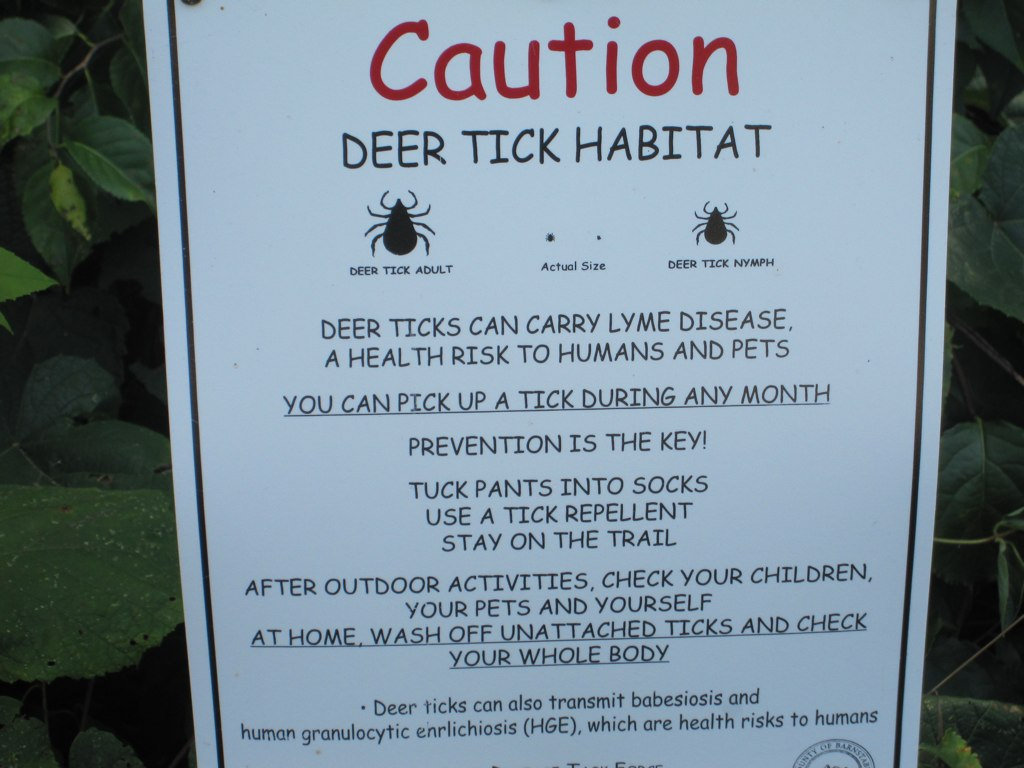experts say 2017 might be crawling with ticks

Because of our dogged propensity to spend pretty much all of our time outside, our proximity to livestock, and our unparalleled love of tromping through the woods in the Spring, agrarian-minded folk need to be especially vigilant for ticks. And so, farmers in the Northeast will shudder to listen to this piece on NPR, suggesting that due to a mice infestation of 2016, 2017 may be crawling with the Lyme Disease-carrying deer tick. (Worth noting here that regardless of where you live, the piece is well-worth listening to for its insight into how human activities have led to the proliferation of deer ticks.)
https://www.npr.org/player/embed/518219485/518743106
When I got Lyme Disease myself several years ago, I made it a bit of a mission to learn everything I could about ixodes scapular, commonalty known as the deer tick. Among the most useful of information that I unearthed was this information on the life cycle of a tick: ticks are most likely to feed on humans during their nymph stage, which occurs May-July (though, where I live, this seems to happen earlier and earlier every year; we were finding nymphs on us in the unseasonably warm April of 2016). They don't feed again until they become adults in the mid-to-late Fall-- making October the second peak in tick season in New England. If there's a time to be vigilant, even to stay out of the woods, it'd be in May or October.
All of this is to say, now is a good time to prepare for the first peak of the Spring, and the good news for farmers is that one of the best things to do to reduce your local tick population may be to get a flock of fowl. Flower and veggie farmers will be relieved to hear that planting herbs as common as garlic, thyme, yarrow, and basil can keep ticks out of your fields and garden. Other tips that I've read and liked? Take a shower as soon as you come inside for the day, nuke your clothes in the dryer for 10 minutes when you take them off, carry a lint roller to collect ticks off your clothing while you're outside.
My favorite method, though, involves keeping the pests off of your in the first place. DIY tick repellants contain essential oils that mask your smell and repell the ticks. These oils include rose geranium, sweet grass, eucalyptus, peppermint, and-- what I've personally had the most success with-- cedar wood. And though my partner swears that he's seen ticks literally jump off parts of his body upon which he's applied clove oil, I haven't yet found any evidence to back up this claim. Here's a great recipe, but there are plenty more available with a quick google search.

